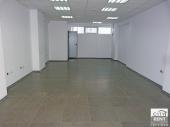|
| Electronics – Engine of Industry 4.0 in Bulgaria |
|
|
 Intelligent industry, or Industry 4.0, as they called it in Germany back in 2011, includes the most advanced level of automation of manufacturing processes through digital connectivity using computer and internet technologies. On their website Mediapool Agency created a section dedicated to the sector of Bulgarian economy, which has the biggest contribution to its technological development.
Intelligent industry, or Industry 4.0, as they called it in Germany back in 2011, includes the most advanced level of automation of manufacturing processes through digital connectivity using computer and internet technologies. On their website Mediapool Agency created a section dedicated to the sector of Bulgarian economy, which has the biggest contribution to its technological development.
In Bulgaria, the "engine of the revolution is the sector of electronics and electric equipment", which in recent years has become the biggest export of the country with exported goods totaling BGN 5.6 billion in 2017. It even outpaced traditional export leaders like the fuel sector and copper extraction that marked rise in 2017.
Data for 2018 show that we continue to occupy the first place, chairman of the Bulgarian Association of Electrical Engineering and Electronics, Rumen Atanassov, said, as quoted by the agency. According to him, the revolution did not happen overnight but there has been solid growth in the sector for a decade. According to Atanassov, the reasons for the success of the industry are also historical. The sector has gained a lot of growth thanks to the vast number of experts who received their education in Bulgaria during the 70s and 80s. Even today, the intellectual potential in the sector is the thing that attracts foreign investors and not low taxes. Taxes can be evaded, but not incompetence, Mr. Atanassov says.
“Among the largest investors in the industry are world leaders such as Liebherr, ABB, Schneider Electric, Melexis, Behr-Hella, Festo, Hyundai Heavy Industries," he recalls. The share of low-voltage electrical appliances in Bulgarian export is big. "ABB" have four such plants in Bulgaria and a fifth one is being planned. The Liebherr plant near Plovdiv is the largest plant of the company in the world with about 1 million refrigerators produced annually. Bulgarian company "Datex" is regional leader in the production of cash registers. Industrial electronic equipment is also produced in Bulgaria. A supplier of electronics for Canadian corporation Bombardier is located in Sofia. A company that sells electronics for all kinds of renewable energy sources - wind generators, solar power plants, etc. is also located in Sofia. In recent years, the market for energy storage equipment has also been developing fast.
According to analyst and member of the Bulgarian Association of Electrical Engineering and Electronics, Lyudmil Mihailov, there are 402 economically significant enterprises producing electronics and electrical products. 65 of them are owned by foreign investors, employing about 27,000 people out of a total of 43,000 working in the sector. Approximately half of the sector's production is produced in the factories of foreign investors. A large number of enterprises, especially foreign ones, are concentrated in Sofia, but there are also many across the country.
Not everything in the sector, however, is perfect. Part of it is still in the third or even the second industrial revolution. The growth observed in recent years is due to the modern production of cables for the automotive industry of Europe, mostly Germany. These plants, however, are seen as social enterprises that create jobs for the uneducated and the low-skilled. Another problem in the sector is its strong fragmentation. The problem with technical staff is the most critical one. Young people focus mostly on economics, law and specialties in which they can find career faster - show business, advertising, marketing. Addressing staff shortage, experts are looking towards women and retirees who can be more actively involved in production if flexible and reduced working hours were introduced.
Representatives of the Bulgarian Association of Electrical Engineering and Electronics think that an adequate government policy is needed to protect the society from lagging behind the Fourth Industrial Revolution.
Experts, however, are firmly convinced that despite forecasts for a slowdown in the world economy and the emergence of a new crisis, there were no fundamental prerequisites for problems in the sector in 2019. |
|
|
Source:
bnr.bg
|
| Wednesday, Jan 23, 2019 |
|
|
|
|
| » RENTALS |

|
|
|
| Shop / Retail |
€ 205 |
|
| Location: |
Veliko Tarnovo |
|
|

|